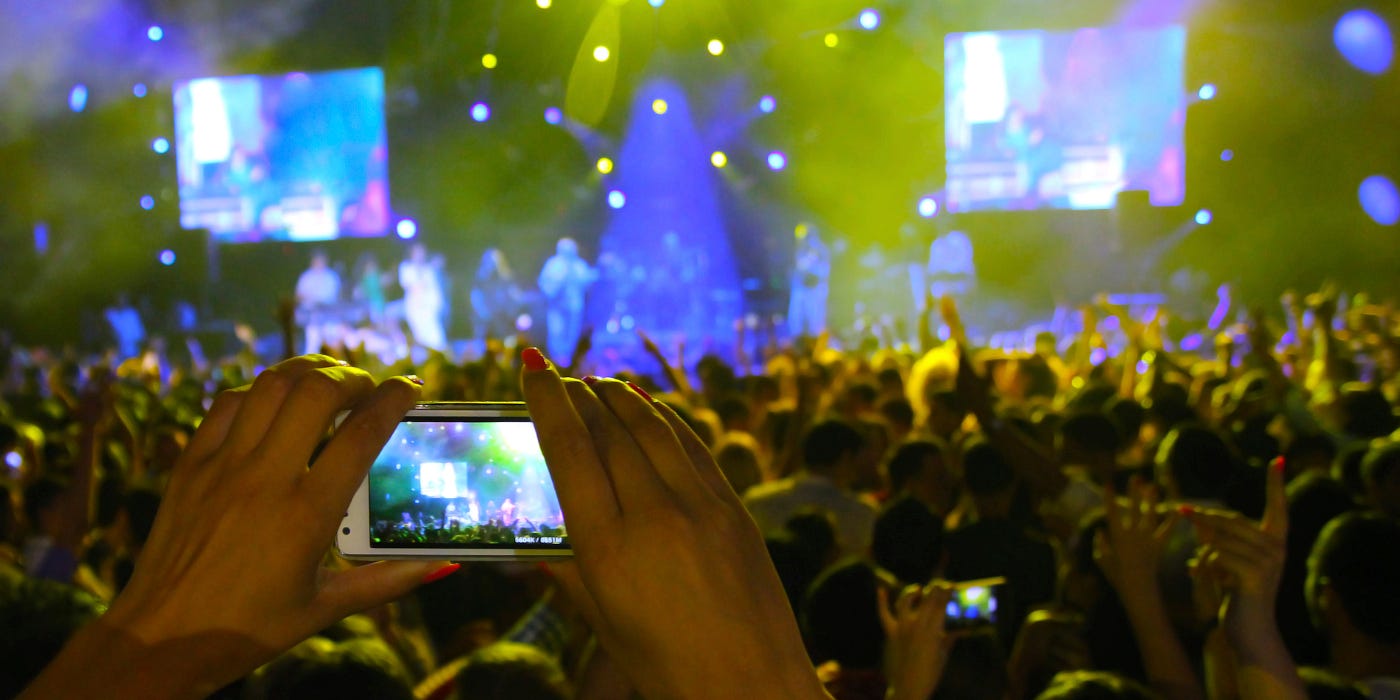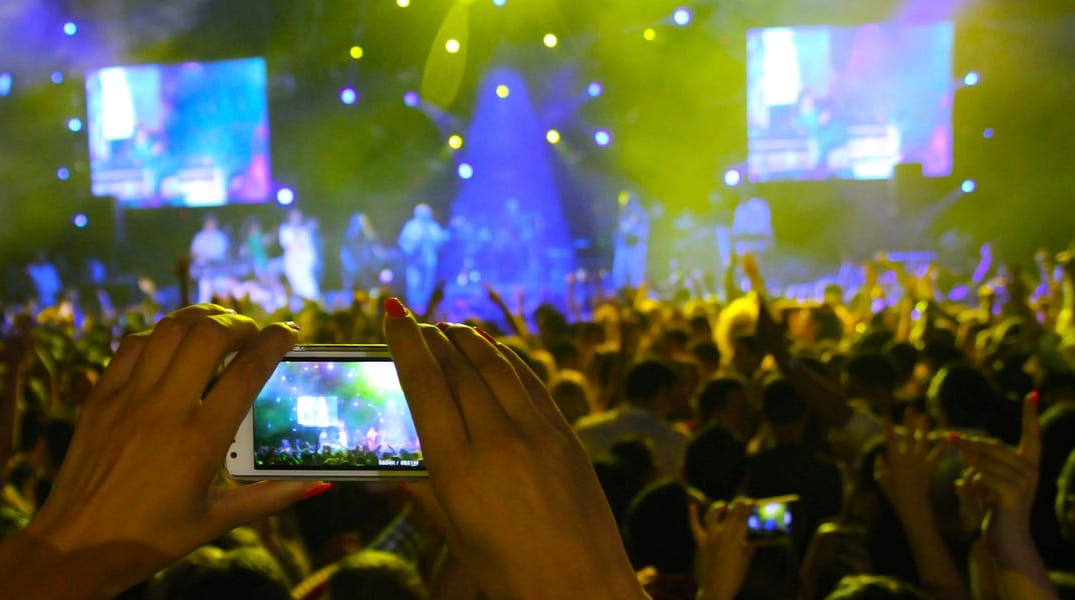
A few years ago I went to Jerry Garcia’s 70th memorial birthday concert at Bob Weir’s futuristic TRL studio in Marin. Now, anyone could watch this show online and can keep watching it until the end of time because there were television cameras rolling. They still sell DVDs of the concert. However, right in front of me, as a rotating ensemble from the Dead, Phish, Vampire Weekend, and a bunch of other bands plowed through a four hour set, someone felt the need to film the performance, not with an iPhone, but with an iPad. A big ol’ digital placard right there. I could still see about 73 percent of the stage but my eyeballs kept gravitating to the goddamn screen. Bob Weir was ten feet away but I was fixating on his pixilated image.
Of course anyone who has been attending shows has been here. Some jabroni holds up his phone in an attempt to be the Most Selfish Person With A Ticket. Whether they’re doing this to message, ‘gram, snap, or snoodlepoo, doesn’t matter — they’re in the damn way. Yet if you think any of this is obnoxious now, just wait until apps like Meerkat diffuse into the mainstream. Meerkat is basically 1998 brought back again: a livestreaming webcam, but instead of resting atop your huge desktop monitor and vaguely implying you’re an amateur pornstar, it’s on your phone. Click a button and you’re broadcasting through the Internet. Lots of people are into it, including famous folks like Jimmy Fallon, but so far it’s mostly early-adopting technophiles. Meerkat hasn’t done anything profound other than hit-right place-right-time square between the eyes. Bandwidth speeds, integration with Twitter friends (since restricted by Twitter), PR at the right place (South by Southwest), a tipping point of media-types wanting a new toy, a logo that makes it look like a Snapchat product — over the last month all these factors have helped Meerkat skyrocket to success where others have failed. Tech trends are fickle that way.
Of course, jerks at shows extend beyond Meerkat’s reach. I saw Edward Sharpe and the Magnetic Zeros recently and found myself reaching for my iPhone to record some bizarre mumbojumbo Alexander was spouting. The next night I saw Girl Talk and wanted to record some crazy visuals over the stage. But what stopped me was knowing I wouldn’t watch the footage later. You know, and I know, and your friends know we really never watch the footage. The visuals look like a bad acid trip and the audio sounds like forks caught in the garbage disposal. Louis CK has a related bit where he proves the pointlessness: take your footage from whatever concert you were at and after five seconds edit in a clip of your own asshole. Post it to Facebook. You will get just as many likes. No one watches more than three seconds. Your footage sucks.
But here’s the ominous reminder from Meerkat: that footage won’t always suck. Look how far the quality of recording with a phone has come in the last five years. It is not unreasonable to think in another five years pocket computers will actually capture the curvature of a Bassnectar drop or the wailing of Jack White’s guitar. And when this starts to happen, a lot more phones are going to be bobbing up and down like periscopes (Twitter just bought a competitor to Meerkat called, well, Periscope). Increasingly more people are going to be saying, “Hey look, I am attending a concert!” Even more people are going to feel empowered because they can beam their friends right into the moment, because the technology is so good that their friends feel right there in the moment. No more forks and bad acid.
When you’re at a show, no one should actually care if you pay attention. But if your lack of paying attention makes it hard for other people to pay attention then — and pay attention! — you’re being awful. You may pick out great birthday presents, but you’re still awful. I know you’re awful because I have been awful. I have blocked people’s views with my periscope. Awful. What if we all laid down our arms and agreed that at a concert you take one singular picture — ‘Gram it up! — that shot where everyone’s hunched together smiling, and some beer is spilling on the bro crouching in front with his tongue out, and the stage is a little strip of pink and grey scaffolding in the background. You were there. We were there. Here’s the keepsake, photo 1,293 of 3,190 in your camera roll. Perfect.
The purpose of a live show is to be alive at a show. The reason we’re here is to experience music, not prove we experienced music. Yet the entire concept of a social network is built around transference. Facebook exists because it’s human nature to brag, to show off, to preen. The social mechanics breathe game theory — you will outcompete, outdo, out-socialize your friends. You will get more likes, more comments, more retweets. Your number will be higher than your friends and therefore indicative of some value of self-prescribed worth.
You are #winning.
Meerkatting is coming to your local concert venue. (I just used “meerkat” as a verb and you didn’t blink.) The fact that it torches a data plan will pump the brakes on adoption a little, but like picture and audio quality, the Forces of Technological Improvement will prevail there too. How else will their users rack up all those likes?
Got a tip for The Bold Italic? Email tips@thebolditalic.com.







